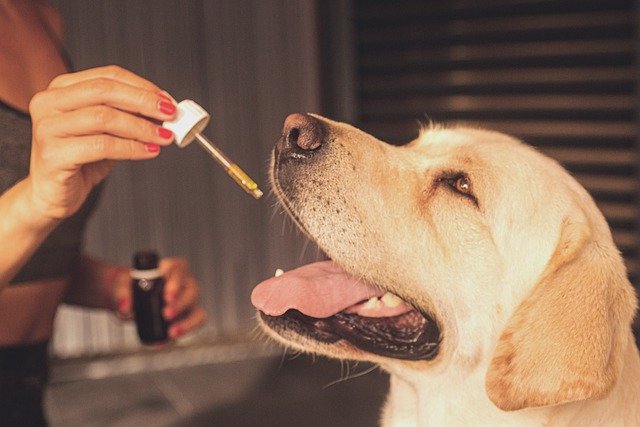Cannabidiol (CBD) has become more like a craze, thanks to its potential to treat various diseases. Some of the medical conditions that CBD might treat include arthritis, epileptic seizures, post-traumatic stress disorder, cancer, acne, to mention but a few.
And the best part is, you can also administer CBD to your pet to relieve a broad spectrum of diseases.
But as a responsible pet parent, you should tread with caution while introducing your furry or feathery friend to CBD. Read on for more insights on what veterinarians think about cannabidiol for pets.
1. CBD might relieve certain diseases in pets
According to AKC’s Chief Veterinary Officer, Dr. Jerry Klein, cannabidiol might benefit pets nearly the same way it benefits humans. That’s to say, you can use CBD to manage various chronic diseases in pets, including arthritis, seizures, and separation anxiety.
In fact, anecdotal evidence from numerous pet parents points to CBD’s effectiveness with neuropathic pain and seizures.
Cannabidiol also has anti-inflammatory properties that might benefit pets, particularly those suffering from inflammatory diseases like cancer.
What’s more, CBD also comes with anti-nausea, antibacterial, and antioxidant properties, both of which might be useful to your pet.
2. All CBD products are not made equal
When looking for the best CBD product for your pet, safety, and quality should be your primary considerations. To choose safe CBD for pets, insist on products made from cannabidiol obtained by CO2 Extraction. Shun products formulated with CBD are obtained by other extraction methods, such as Solvent Extraction.
Also, visit the supplier’s website before ordering their products and ensure that there are test results from third-party labs. That’s the only way you’ll be sure that the product contains the ingredients featured on the list and that each ingredient is safe for your pet.
It’s also essential to choose the best CBD product for your pet based on the delivery method. Traditionally, most CBD products came in the form of oral tinctures. But oral medicines may not be ideal for picky eaters. Therefore, your best bet is to go for CBD-infused pet treats.
3. Ensure that your pet qualifies
There’s no fun in offering Lazarus Naturals CBD to your pet for the heck of it. You must ensure that the animal qualifies for cannabidiol before introducing him to the substance.
Generally, a pet can consume CBD if he’s suffering from any medical conditions that CBD has been shown to treat. Even so, remember that pets with suppressed immunity are better off not consuming cannabidiol.
The conventional wisdom is to discuss with your vet before giving him any CBD product. That’s especially true for;
- Very young or elderly pets
- Expecting or breastfeeding pets
- Sickly pets
- Pets recovering from a surgical operation
4. Only use CBD for medical purposes
CBD is best known for its non-psychoactive properties, which explains its popularity in the health and wellness industry. But besides medical use, cannabidiol can also be used recreationally, especially if a CBD-product contains significant psychoactive cannabis extract levels, tetrahydrocannabinol (THC).
While humans can use CBD recreationally, you should never administer THC-containing CBD products to your furry friend. That’s because the psychedelic effects triggered by THC could be disastrous for your pet.
According to research, dogs have a higher concentration of endocannabinoid receptors in their brains, which means they’re more sensitive to THC and its psychoactive effects.
If you’re looking for THC-free CBD products for your pet, insist on products that bear the labels ‘isolates’ and ‘broad-spectrum,’ while shunning those labeled ‘full-spectrum.’
CBD isolates refer to products that contain cannabidiol as the only active cannabis ingredient. Broad-spectrum CBD products usually come with the benefits of other cannabinoids but are formulated to exclude the mind-altering tetrahydrocannabinol. Lastly, full-spectrum CBD contains CBD, THC, and other cannabinoids.







Recent Comments